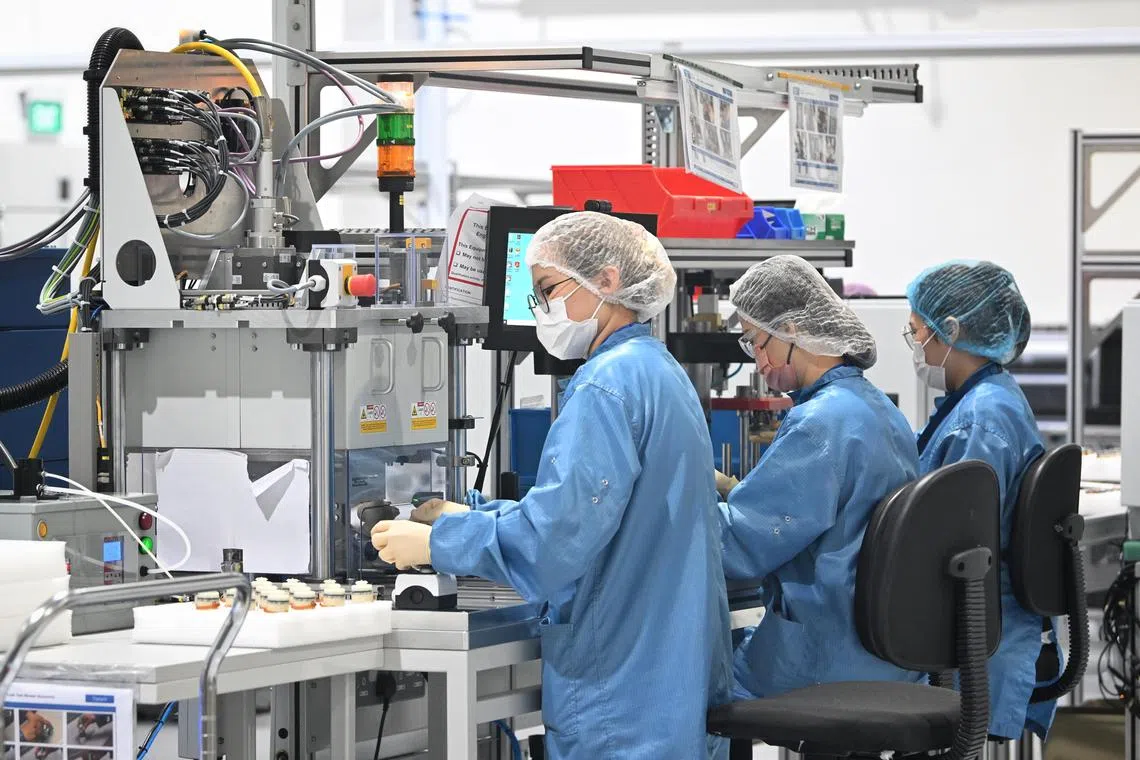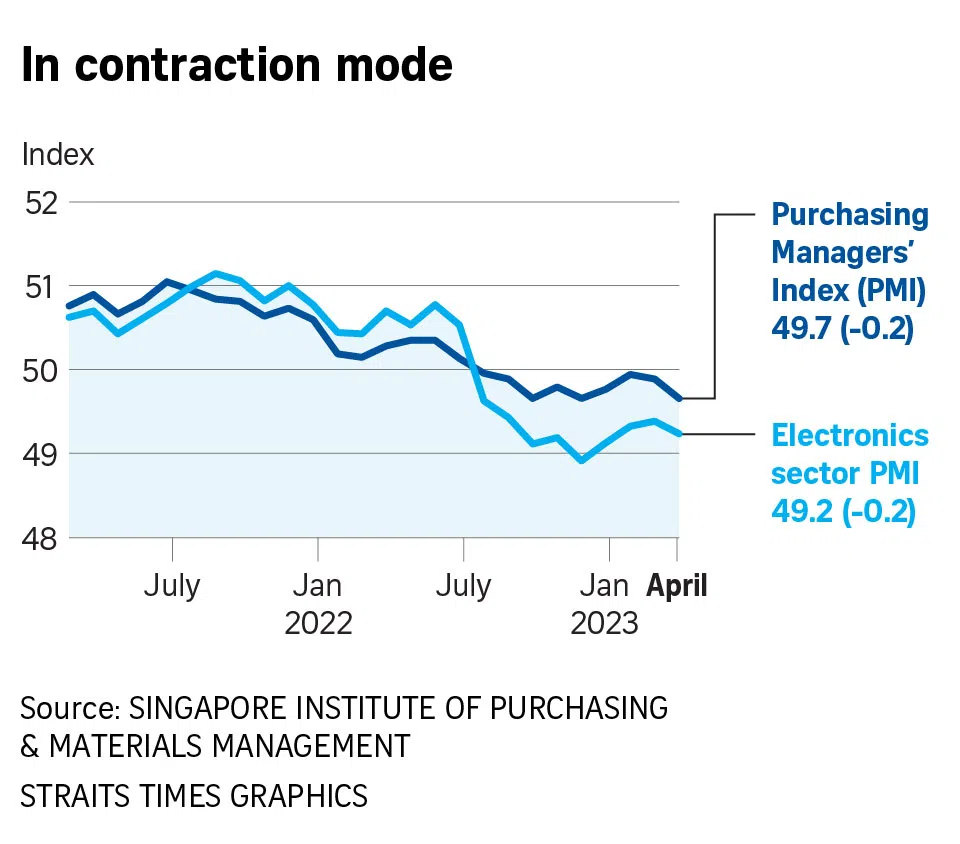Singapore factory activity drops in April as electronics sector downturn drags on
Sign up now: Get ST's newsletters delivered to your inbox

Singapore's PMI fell 0.2 points to 49.7 in April.
ST FILE photo
SINGAPORE – Manufacturing activity in Singapore eased for a second straight month in April, caused in large part by the lengthy downturn that continues to hit the electronics sector amid a global slowdown.
The Singapore Purchasing Managers’ Index (PMI), a key gauge of the manufacturing sector’s health, fell 0.2 point to 49.7 and followed a 0.1 point decline in March,
The electronics PMI dropped 0.2 point to 49.2, continuing its nine-month run in contraction mode. April’s decline comes after the sector’s PMI rose in the first three months of 2023 above the 2½-year low of 48.9 last December, but remained below the 50 level.
The sector, which accounts for 42 per cent of Singapore’s manufacturing output, has been in recession amid a worldwide slide in demand for electronic goods, especially in advanced economies such as the United States, the European Union and Japan – all major trading partners of Singapore.
The strong economic rebound expected in China following the lifting of Covid-19-related curbs in late 2022 has so far proved elusive.
SIPMM executive director Stephen Poh said: “Singapore manufacturers are becoming less optimistic on an immediate recovery following China’s reopening.”
China’s manufacturing PMI fell from 51.9 in March to 49.2 in April
The deterioration in Singapore’s electronics PMI was attributed to deeper contractions in key areas such as new orders and inventories, while the order backlog recorded a decline after two months of shallow growth.
UOB senior economist Alvin Liew said the worsening electronics down cycle and weaker external demand are unlikely to change soon. He added: “We still expect PMIs for Singapore to remain in contraction territory and the weakness may linger... while a second-half recovery is far from certain.”
April’s PMI report follows data out the week before that showed Singapore’s industrial production had dropped 4.7 per cent in March, falling for a sixth month in a row.
Mr Liew expects manufacturing to contract by 5.4 per cent this year, while non-oil domestic exports could shrink by 5.5 per cent.

The Monetary Authority of Singapore (MAS) also warned in a report the previous week that growth prospects for the year have become more uncertain
It added that the global electronics industry is in a sharp downturn, and that the drag on investment and manufacturing from tighter financial conditions will intensify in the quarters ahead, while the boost in demand in many regional economies sparked by their reopening last year will also fade over 2023.
However, MAS maintained its forecast for the local economy to grow between 0.5 per cent and 2.5 per cent this year.



